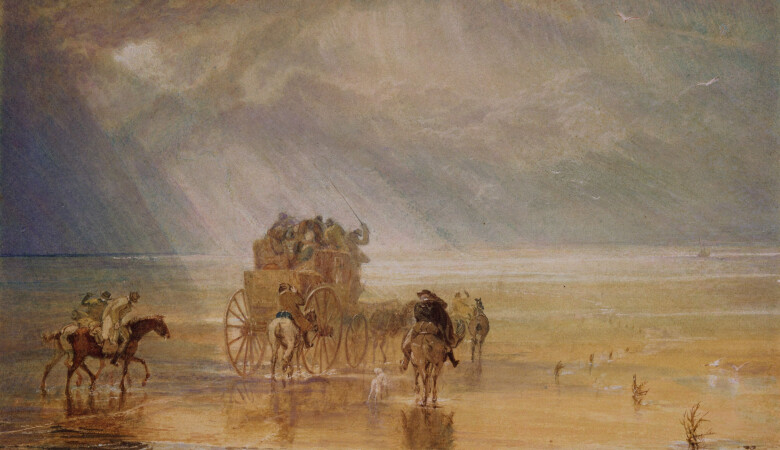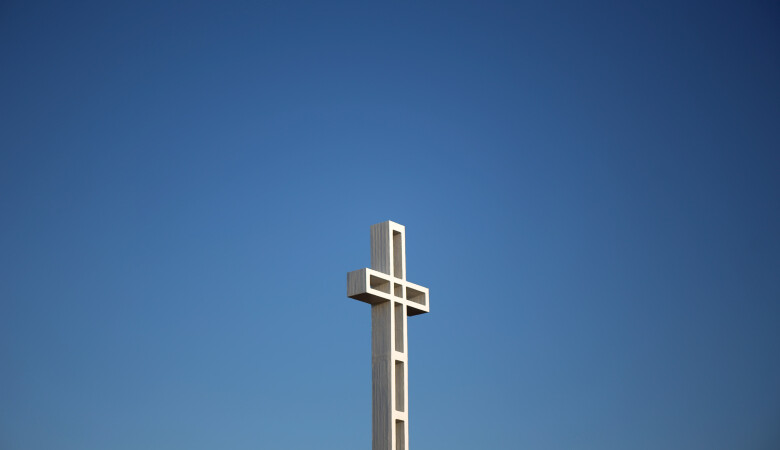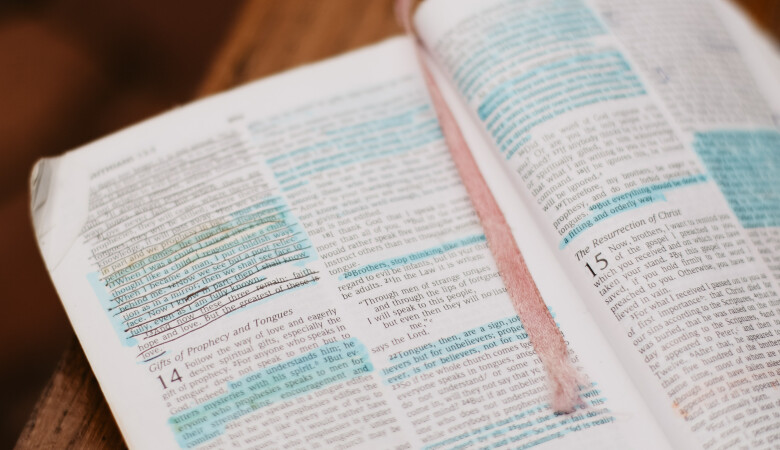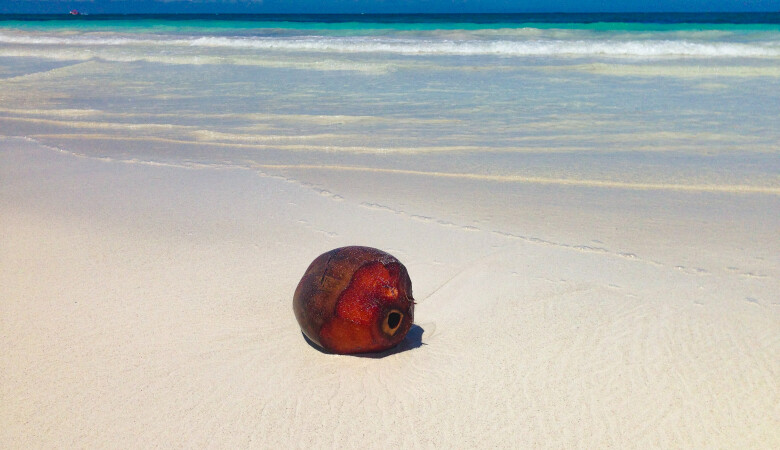Repentance and Confession: A Good Start to 2006
January 01, 2006 | Andy Davis
Psalms 32:1-11
Kindness of God, Repentance
Pastor Andy Davis preaches a verse-by-verse expository sermon on Psalm 32. The main subject of the sermon is how we should devote our lives to serving God through repentant faith and confession of sin.
- SERMON TRANSCRIPT -
Well, I stand before you today, a happy man, and a sinful man at the same time. Is that possible? Is it possible for a sinner like me to have the right to stand before you behind this pulpit and preach? I wrestle with that week after week after week. What right do I have to give anyone Godly counsel when I myself commit sin? And I find in Psalm 32 the only encouragement I can find, not just there, but also in other places that God can actually elevate sinners, forgive them, restore them, renew them and use them for his glory. Isn't that our hope, that our lives are not wasted here in this world? We know it was Martin Luther, the one who nailed the 95 Theses to the door of the Wittenberg castle, who taught that a man could be at the same time, both righteous and sinful. Well, it seems to me that Psalm 32 says, at the same time, we can be both happy and sinners, forgiven through the blood of Christ. It is possible. More than that it is actually our birthright as Christians. It is our birthright to know the joy of the Lord that is our strength, and it's a joy that just flows like a fountain from Psalm 32. “Blessed is he whose transgressions are forgiven, whose sins are covered.”
Now, as a pastor, as I think about counsel and Biblical wisdom that I'd like to give, and gifts that I'd like to give also from the Word, I'm always battling with this issue of sin and what to do about it and how to preach concerning it. It seems to me that we need to stand at a point of time like January 1st, 2006, to stand and look back and look forward, and it's interesting how we are called by the Bible to look backward differently than we are called to look forward. As we look back, we may see specific sins that we've committed, patterns of sin that have taken root in our lives and wonder, what can wash away my sin? How can I be made right with a holy God? Psalm 32 gives the joyful answer to that. Also, as we stand here and look ahead, we should do so with fear and trembling at the great power of sin to destroy every good gift that God would give us, and with a confidence that God's grace will be there for us at the time of testing to enable us to overcome sin's test. I think all of that flows so beautifully from Psalm 32, and we need an instructor today, and I can commend to you no better instructor than King David. I think he's the one who can stand with us here in Psalm 32 and teach us how to look backward at sins we've committed and find forgiveness and grace through confession and repentance, and he's also the one that can stand and warn us and say, "Don't do what I did." Sin is deadly dangerous. So stand firm and fight the good fight.
I. The Qualifications of Our Instructor David
So what are the qualifications of our instructor, David? Why does he have the right to speak to us about this issue of confession and repentance? Well, I perceive in David's life, what I could call a continental divide. A continental divide is that place out in the Rockies where rainfall precipitation that flows, that hits on the west side of the divide, basically finds its way to the Pacific Ocean, and anything that lands on the East Side finds its way eventually to the Atlantic Ocean. It's a continental divide. I perceive such a divide in David's life. It's in second Samuel 11. And in second Samuel 11, there is the account of how David, during the time when kings usually go to war, was walking around on the roof of his palace and he spotted a beautiful girl, and you know the rest. And for a night of pleasure and a night of sin, everything changed from that way, from that time forward. Now I'm not saying that everything had been nothing but enjoyable and easy for David in his life up to that point. No question about it, there had been severe trials. Saul had been hunting him down like a wild animal. Saul's army would have killed him on sight, if they could have caught him. After the death of Saul, 10 of the tribes of Israel rebelled against him and did not want him to rule over them, and that started a bitter civil war, and there were many lives lost in that war. He didn't come easily to His throne. David had to fight to win his kingdom, and yet through all of it, he always had a sense of the abiding grace of God, the hand of grace in his life.
But from second Samuel 11 on, there's a change. Isn't there? The sword never departed from David's household. One night of pleasure and for the rest of his life, painful memories and effects. The basic lesson is that sin is too expensive for us to indulge in. It doesn't come free of cost. Can a man scoop live coals into his lap and not be burned? And David was burned even to the point of his own beloved son, Absalom, taking up the sword against him to seek to kill him, leading a revolt to topple him from his throne. David was never the same again. Now we have in Psalm 32, a display of David's humble, broken-hearted, repentance. Now, many have looked at David's sin, his terrible sin with Bathsheba and how he arranged to have Uriah killed, they've looked at that wrongly as somewhat of a carte blanch, a blank check to sin as much as you want, because God forgave David. What can I say to you, as one pastor put it this way, “It is easy to imitate David in his sin. It is not so easy to imitate him in his repentance.”
"The basic lesson is that sin is too expensive for us to indulge in. It doesn't come free of cost. "
There's a story from church history. When the Emperor Theodosius slaughtered some Thessalonians, Ambrose, the Archbishop of Milan, was so repulsed that he refused to give the emperor holy communion, and the emperor said, “That's not fair. David committed worse sins than I did.” Well, to this Ambrose answered, “You have imitated David in his crime, then imitate him in his repentance.” And off and on for the next eight months, this emperor, the most powerful man on earth, was seen wearing sackcloth and basically begging in front of Ambrose's house in order that he might be forgiven by God. And so I say to you, we should not look at the example of David and say, “Look, he's sinned. Look what he did. And now he's up in heaven. Everything's fine.” Sin is never fine, it's never easy, it's never cheap, inexpensive. It always has its cost.
I believe that Psalm 32 probably is an insight into the worst year of David's life. The most horrible, from the time of his sin with Bathsheba until the time when Nathan confronted him in his sin, by that time, the baby that had been conceived was born, probably a little bit on in life we're talking about, I don't think it's a stretch to say at least a year in which he wrestled with the effects of his sin. And as we read between the lines in Psalm 32, and in the account in second Samuel, I think that we can come to the conclusion that a commentator, Alexander McLaren, did concerning that year.This is what McLaren said,” Thus he dragged through a weary year—ashamed of his guilty dalliance, wretched in his self-accusation, afraid of God, and skulking in the recesses of his palace from the sight of the people. David learned, what we all learn (and the holier a man is, the more speedily and sharply the lesson follows on the heels of his sin), that every transgression is a blunder, that we never get the satisfaction which we expect from any sin, or if we do, we get something with it which spoils it all. A nauseous drug is added to the exciting, intoxicating drink which temptation offers, and though its flavor is at first disguised by the pleasanter taste of sin, its bitterness is persistent though slow, and clings to the palate long after that has faded away utterly.”
There's always something mixed in there with the sin, and then that becomes the overwhelming and the bitter taste that's left, and so it was for David. By the time that Nathan the prophet came, David was ready to confess his sin, wasn't he? God had made him ready, but this was a miserable year for him, Matthew Henry put it this way, “One would think that it should be followed that the Lord sent enemies to invade David, terrors to take hold of him, the messengers of death to arrest him, but no, he sent a prophet to him. [Chapter 12 verse 1 of second Samuel, it says,] ‘And the Lord sent Nathan unto David,’…David had wandered far, but he was not lost. O how tenderly God watches over his sheep! How faithfully he goes after and recovers them, when they have strayed! With what amazing goodness does he heal their backslidings and continue to love them freely… It is to be duly noted that it was not David who sent for the prophet, though never did he more sorely need his counsel than [then]. No, it was God who took the initiative: it is ever [always] thus, for we never seek him, until he seeks us…’Though God may allow his people to fall into sin, he will not allow his people to lie still in it.’”
And so God sends Nathan. He takes the initiative. He goes and seeks and saves what is lost. We're all like sheep wandering astray and the Lord comes and gets us. And it may be that God has coming to get you this morning. It may be that you have been wandering and straying in sin, and through the words of Psalm 32, through a messenger as sinful as me, really ultimately through David and through the inspiration of David, through the Holy Spirit, God may be coming to get you this morning and bring you back where you need to be. Then, it was Nathan speaking to David. Now, it's David speaking to you. Look what he says in verse eight and nine, “I will instruct you and teach you in the way you should go; I will counsel you and watch over you. Do not be like the horse or the mule, which have no understanding but must be controlled by bit and bridle or they will not come to you.”
Do you not see the warning there? Don't go through what I had to go through. Don't taste the effects of sin and the Lord's discipline. Learn ahead of time by reading rather than after the fact, by living it. It's so much better to learn by reading, isn't it, than afterwards to live just how bitter is sin and how harsh and difficult are the Lord's disciplines? So he said, “Don't be like a horse or a mule, that's gotta be hauled in the right direction, but listen and take counsel.” So David is our instructor, and David has had a thorough education in sin and in grace. These are his credentials. And that's what I wanna teach you. A sin is his own teacher. You've had enough lessons in that college, that university. And so also grace is a teacher, and David was an expert in both. David's desire is to teach us his lessons and he's ready to be our mentor. In a parallel Psalm, Psalm 51, David praying to the Lord said, “Restore to me the joy of your salvation and grant me a willing spirit, to sustain me. Then I will teach transgressors your ways, and sinners will turn back to you.” That's his ministry to us. Because God restored him, he can then help and restore us as we wander and stray.
II. The Nature of Forgiveness of Sins
Well, what is the nature of the forgiveness of sins? This is the first lesson. Look at what he says right at the beginning, in verse one, “Blessed is he whose transgressions are forgiven.” I think he gives us three pictures of forgiveness and what it is. The first is a lifting up of a load. The Hebrew word here in this word forgiven is to lift, or to bear or to carry as if carrying a heavy burden. The Prophet Ezekiel had to the same word is used of how he put his possessions on his back and carried them out through the city wall. There's a sense of a heavy burden that's lifted and being carried, “Blessed is he whose transgressions are [lifted up and carried].”
Now, it's metaphorical here clearly. Sin is a burden. It's a violation of God's holy law. It produces guilt that weighs us down. There's a sense of impending judgment. If it goes on any length of time, we may begin to wonder if we're Christians at all, and then comes a fearful expectation of judgement and of raging fire that will consume the enemies of God, it says in Hebrews 10. What a terrifying burden it is to live under that all the time. What a burden of guilt and of sin. And it was God from the very beginning that established the link between sin and the death penalty. He said to Adam, in Genesis 2:17, “Of the tree of the knowledge of good and evil you shall not eat, for in the day that you eat of it you shall surely die.” And so there's a link between sin and death. All sin deserves a death penalty. Romans 6:23, “The wages of sin is death.” Oh, what a burden to live under that to have a sense of impending judgment, a sense of the guilt and the defilement of sin. It's a great burden, isn't it? Somewhat like swimming when caught by a fishing net, that's weighted and it's tangling you up and dragging you down as if to drown you. What a terrible burden is sin and guilt.
Therefore, conversely, forgiveness is the lifting up of that burden, the taking off of that burden from our conscience so that we don't stagger under it anymore, but we are free and light. I remember I used to go hiking with my father in the White Mountains in New Hampshire, and we would go for several days, and these heavy packs were on our backs, I will never forget it, and we'd be hiking up the mountain and it was just heavy, but you just kinda got used to it, just taking every step with the extra 40 to 50 pounds on your back. But then we would take a break and we would take our packs off, and I felt like I was floating. I literally didn't think my feet were touching the ground, it was an odd feeling, like what it would be like to be on the surface of the moon, somehow our weight greatly reduced. And some of you need that today. I'm not saying anything, but it's that time of year when you're looking on a scale and you wish that you are living on the moon and not on the surface of the earth. That's a very expensive way to reduce your weight.
But there's this sense of a lifting of the burden, a sense of lightness. That is forgiveness. There's that beautiful image in Pilgrim's Progress in which Christian comes to the cross, and for the whole first part of the story, he's been laboring under a load. Some commentators think it was related to Bunyan, who was a tinker, a knife-sharpener and a pot repairer. He used to carry a whetstone, a heavy stone on his back, and he knew what it was like to carry a heavy burden everywhere he went. And so that's a picture of the guilt and the weight of sin, and forgiveness is a lifting of the load. That's the first picture that David gives us.
The second is a covering of our nasty defiling mess. Look at what it says in verse one, “Blessed is he whose transgressions are forgiven, whose sins are covered.” Now, you know, in the 1970s, around the time of President Nixon, the Watergate scandal, there was a lot of talk about a cover-up, and since then there have been many government cover-ups. We talk about cover-up in reference to sin. Cover-up, connected to Enron or some other scandals. There's always this sense of a cover-up, a desire to hide what is shameful.
This is what Adam and Eve did from the very beginning. You remember Adam and Eve took those fig leaves, those pathetic fig leaves, and tried to cover themselves and they're also hiding behind trees. There's the cover up there. It's always a sense of that. But what's amazing to me about the Gospel is that frankly, in the end, God agrees that that is what must be done. In the end, he says it must be covered. Sin has to be covered. You remember that God covered Adam and Eve with the skins of animals, and in the end, that is all that God can and will do with sin. He must cover it. The most significant aspect of forgiveness therefore is that is a covering. Sin must be covered, because there's nothing else that can be done with it. Now, you might say, “Well, I thought God can take away my sin.” Friends, think of it this way, if Adam and Eve had sinned and God were to completely take it away, he would probably have to speak that universe out of existence, speak a new pristine and pure universe back into existence and start all over again. But there's a problem, isn't there? In universe one, which now no longer exists, now that we're into universe two or universe 10, Universe one still exists in a very important place, doesn't it? Where? In the mind of God, and he will never forget it. He can't, lest he denies his omniscience. He will always remember. And therefore, he must cover sin.
Now you say, “Wait a minute, Pastor, there's some verses that seem to say that sin can be completely removed from us,” and they can relationally. Listen to this, Psalm 103, it says, “For as high as the heavens are above the earth, so great is his love for those who fear him; as far as the east is from the west, so far has he removed our transgressions from us.” Or you might quote Micah 7:19, “You will again have compassion on us; you will tread our sins underfoot and hurl all our iniquities into the depths of the sea.” But do you not see the covering in both cases? The sin has not been spoken out of existence. It's merely been covered by infinite distance as far as the east is from the west. So also, the sin doesn't stop existing at the bottom of the sea, but God has covered it over with the raging billows of the ocean. And so therefore, his ultimate strategy with sin is to cover it with something far more significant, something far more precious. And that is the blood of Jesus Christ shed on the cross. That's what he covers our sin with. That's the cover up that works. That's the one that matters. That's our salvation. The day of atonement in the Hebrew Bible, Yom Kippur, it's literally the day of covering. The word Kippur is the covering, like the covering that Noah put over the roof of the ark to keep the rain off. It's a covering. And that's exactly what God does with sin. He covers it. That's the second picture of forgiveness.
Thirdly, not reckoning sin to our account. There's a sense of a ledger book. Look what he says in verse two, “Blessed is the man whose sin the LORD does not count against him.” It’s the issue of an accountant's ledger book. Accountants have to keep careful records. Accounts receivable. Accounts payable. Everything carefully accounted for. Does God have that kind of record book? Yes, he does, more than you can even imagine. Jesus said we'd have to give an account on the Day of Judgment for every careless word that we’ve spoken. And he has a careful record book of everything.
But here's the beauty of forgiveness. He doesn't impute or count our sin against our record book, but rather he gave that to Christ and took Christ's perfect righteousness and imputed it or counted it to our account. That is the foundation of our forgiveness. He doesn't count our sins against us, but rather he does count Christ's righteousness for us. He says this, when Paul is quoting Psalm 32 in Romans 4. It says this. David says the same thing when he speaks of the blessedness of the man to whom God credits righteousness apart from works. Blessed are they whose transgressions are forgiven, whose sins are covered. Blessed is the man whose sin the Lord will never count against him. There we have the righteousness of Christ credited or counted to our account, and we have our sin not credited, not counted to our account. Oh, isn't that enough to make you happy today? That God has come and lifted the burden of guilt off of us. He's covered our mess. He has imputed not our sin against our account, but rather Christ's perfect righteousness.
III. The Misery of Unrepentance
Well, David doesn't just talk about what forgiveness is, he also describes the miseries of unrepentance, the miseries of those who will not confess their sins. First, he speaks of deceitfulness. He says, "And in whose spirit is no deceit." You know, I think it's specifically deceit about sin. Oh, we all lie to ourselves about how good we are. We tell ourselves that we're really better than we are. We minimize our sin. We are deceitful concerning sin. And David says, "…In whose spirit is no deceit." He knew about that deceit for, in my opinion, over a year. He ate his food and drank his drink and lived his life with Bathsheba and went about his business, but all was not well. He was deceiving himself. The deceit of those that will not repent, that will not confess.
There's also a stubbornness there. Look at verse three and four, "When I kept silent, my bones wasted away through my groaning all day long. For day and night your hand was heavy upon me; my strength was sapped as in the heat of summer." Do you see David digging in his heels and stubbornly resisting? Day and night, your hand was heavy upon him. He's fighting. He's stubborn. He's hardening his own heart against God. Also see the physical misery. He talks about his bones wasting away. He talks about groaning all day long. He talks about his strength sapped as in the heat of summer. Friends, there are definitely physical effects to sin.
Now, I know from the book of Job, not every disease is directly connectible to a specific sin committed. We learn that from the book of Job. But we learn from the book of James that there are some that are. There are some physical ailments and diseases and troubles that we have because we have committed sin, and we have not dealt with it, we've not confessed it. It says in James 5, "Is any one of you sick? He should call the elders of the church to pray over him and anoint him with oil in the name of the Lord. And the prayer offered in faith will make the sick person well; the Lord will raise him up.” Listen to the very next words. ”The Lord will raise him up. If he has sinned, he will be forgiven." Why did that come in so quickly? "If he has sinned, he will be forgiven. Therefore confess your sins to each other and pray for each other that you may be healed. The prayer of a righteous man is powerful and effective." Do you not see how clearly, in James 5, there are some maladies, some illnesses, some pains, and diseases that are directly connected to sins we've committed, and if we would just confess them, and if we would just ask God for forgiveness, he would heal us of the illness that he brought on us because of our sin.
And so, there are physical miseries. There are also spiritual miseries. A sense of opposition from the Lord, a sense that God's hand is against you. Since that you don't enjoy prayer anymore, you don't enjoy reading Scripture anymore, you don't delight in singing Psalms, hymns, and spiritual songs anymore. You're under the burden of guilt, and so you can't enjoy your relationship with Christ. How many Psalms do you think David wrote during that year that made it into the Bible? I see a bunch of paper, if they had it back then, papyrus or something crumpled up and thrown away as he keeps trying to do what he used to do so easily. Just write a Psalm to the Lord, he just couldn't do it. Now, this is all speculation. I have no idea. But I know this in my own life. When I have unconfessed sin, I do not enjoy my walk with Christ. It's harder to have a quiet time. It's harder to come to church. It's harder to have good Christian fellowship. All of those things are harder, because of sin. There's a spiritual opposition.
And then, there's life woes, just difficulties, things that happen in providence. Do you realize that God just totally and completely controls his universe? Do you realize that a sparrow doesn't fall to the ground apart from the will of God? Do you realize the very hairs of your head are all numbered? Do you realize that a lot is not cast into the lap, except that it's every decision is from the Lord? Do you think David had some life woes and difficulties during that year? Do you think some things went against him? That there were some reverses in his life? Do you think God might have been trying to get his attention? Look at verse 10, he says there, "Many are the woes of the wicked." Do you think he might have been speaking about himself, his own year? What a bad year it's been. And in your life, it could be financial difficulties. It could be unexpected bills. Could be relational difficulties. It could be reverses at work or at school. There could be all kinds of things that are fully at God's disposal. Woes of the wicked, difficulties in life. These things, friends, are the miseries of those who will not repent, who will not confess their sins.
IV. The Nature of True Confession
Well, what is the nature of true confession? What does David give us that tells us what confession is? Well, look what he says in verse five, "Then I acknowledged my sin to you and did not cover up my iniquity. I said, ‘I will confess my transgressions to the LORD,’-- and you forgave the guilt of my sin." And so, therefore, you know what it is? Confession is uncovering your sin before God. Taking off the fig leaves in front of him. There's a key insight from the book of Proverbs. The Proverb is printed in your outline. It's Proverbs 28.13, and it says that, "He who conceals his sin does not prosper. But whoever confesses and renounces them finds mercy." You know, basically, verse two says, "Blessed is the man whose sin the Lord covers." And verse five says, "Cursed is the man who covers his own sin." So, basically, friends, brothers and sisters, it all comes down to this. Someone is going to cover your sin. Someone's gonna cover it. It's either gonna be you or the Lord.
Now, how well will it go for you if you cover your own sin? Well, Proverbs 28.13 says, "You will not prosper." It says, "He who conceals his sins does not prosper." Specifically, conceals them from God. And so, therefore, confession is going to God and uncovering the sin. Call it by its true name, not those glossy kind of shiny names that we give to sin. You know what I'm talking about, fibbing and, I don't know, I don't even wanna say all those words. Let's call them by their real name, pride, anger, lust, laziness, selfishness, greed, gluttony. Let's call them what they really are. Uncover the sin before God, call it by its proper name. Don't conceal it anymore. Confession means God hears what I did. And it's done voluntarily. It's done 'cause you want it covered by God. You're glad to have God take the burden from you. You're glad to have him cover it. To have Christ's righteousness credited to your account. You're glad for that. David was eager by the time Nathan came. You do it voluntarily, not under compulsion. And you do it before the Lord.
Look at verses five and six, "Then I acknowledged my sin to you and did not cover up my iniquity. I said, ‘I will confess my transgressions to the LORD,’-- and you forgave the guilt of my sin. Therefore let everyone who is godly pray to you while you may be found." Do you see how intensely relational with God it is? Therefore, you're uncovering your sin to God before his holy eyes, and you're telling him what you really did. He confessed it before the Lord to restore, first and foremost, his relationship with the Lord. Now, this point is made almost shockingly in the parallel Psalm, Psalm 51 and verse four. Remember where it says there, "Against you and you only have I sinned and done what is evil in your sight, so that you are right when you speak and [prevail] justified when you judge?" Isn't that a little odd? I mean, didn't Uriah lay moldering in his grave because of David's sin? Wasn't Bathsheba's character defiled and her life and world turned upside down because of David's sin? Wasn't there a dead baby because of David's sin? Didn't his whole nation have to go through another civil war when Absalom tried to seize the throne because of David's sin? Wouldn't there be other Israelites who would die because of David's sin? Yes, to all of those. But here's the point, sin is directly an affront to Almighty God. It is first and foremost against him and him only that we sin, and therefore, the confession must be intensely directed toward the throne of God. That's what confession is. We're going to God, before his holy eyes, we are uncovering what we have done. And it's done in prayer.
"Sin is directly an affront to Almighty God. It is first and foremost against him and him only that we sin, and therefore, the confession must be intensely directed toward the throne of God."
He says in verse six, "Therefore let everyone who is godly pray to you while you may be found." Confession must be done in prayer. You have to speak to the Lord, friends, what he's been speaking to you. Isn't that the point? Confession is agreeing with God. He's been saying this to you, "It's sin. It's sin, it's sin. It's sin." You've been hardening your heart, not listening. Finally, you just can't do it anymore. You say, "I agree, you're right." And you speak to the Lord in prayer what he has been speaking to you through the conviction of the Holy Spirit. Maybe you need to do even a little digging work. Maybe you need to just lay yourself out on the bed or on the ground, and say, what David says in another place, Psalm 139, "Search me, O God, and know my heart; test me and know my anxious thoughts. See if there is any offensive way in me, and lead me in the way everlasting.”
Find anything in me that I'm missing. We have such deceit, such blindness to sin. We just say, "God, I'm gonna be here a while. Just show me what's hindering my life with you." And he does. He shows it to you, and at that moment, you just confess it and turn it all back to him. Confess it in prayer and ask for his forgiveness. And, friends, do it while he may be found. Is there not a warning there? "…let everyone who is godly pray to you while you may be found." Friends, we have a window of opportunity. It is not going to be open forever. You have a window of opportunity today. God has allowed you to live to this moment. You have an opportunity now to confess your sins. “Seek the Lord while he may be found; call on him while he is near.” It says in Isaiah 55, "Let the wicked forsake his way and the evil man his thoughts. Let him turn to the LORD, and he will have mercy on him, and to our God, for he will [abundantly] freely pardon." Or, to put it another way, if today you hear his voice, do not harden your heart. If God is speaking to you right now about sin in your life that you have not confessed. Do you not feel the sweet invitation of this incredible Psalm? Saying, "Step through the window of opportunity before it closes. Confess the sin while God may be found." Confess it to him.
V. The Results of True Confession
Now, what are the results of true confession? Oh, these are the good things. What happens if you do it? Well, how about happiness? Everybody wants happiness. That's what the word blessed means. That's how the whole Psalm begins. Happy. Happy is just not enough, though. We don't really know the happiness that comes from a perfect sense of our forgiveness. Some day we will. Oh, we will be eternally blessed in heaven, eternally happy. But we can drink from that fountain now. We can have a sense of happiness now, a sense of worship, happiness and worship in knowing that we are forgiven. It's better than the happiness that comes from secular entertainment, certainly better than that which comes from an alcoholic drink or an illegal drug. Those things are evil and bring no ultimate happiness. But this is a happiness that lasts, the happiness of knowing that your creator is at peace with you and you with him, happiness and worship, a sense of confidence. It changes a sinner like David from a sick, broken, wretched individual to one who can truly sing worship songs from his heart.
Look at verse seven, “You will protect me from trouble and surround me with songs of deliverance." Verse 11, "Rejoice in the Lord and be glad, you righteous; sing, all you who are upright in heart." That's worship, friends. That's happiness. You want happiness? Confess your sins. Also, there's a sense of security. Look at verse six and seven, "Surely when the mighty waters rise, they will not reach him. You are my hiding place; you will protect me from trouble and surround me with songs of deliverance." Because of being right with God, the sinner now has a sense that they're free. They're safe. The greatest danger has been averted; we will not go to hell. We will not be condemned by God for our sins. We are safe, and God is with us, and he is our shield and he is our protector, and we are safe. A sense of security, not of insecurity.
And ministry, finally, to other sinners. I began this way. How could a sinner like me get up and preach to you? Do you know how many times the devil gets me with that one? Especially on Saturday nights. I have to pray through that every Saturday night. What right do I have, as a sinner, to talk to these folks about God? Well, I don't have any right any more than Peter had a right to preach the Pentecost sermon. And believe me, I'm not minimizing sin. But I know this, that a sinner like David can teach and instruct other sinners how not to sin and how to confess, and that's what he does here. Look what he says in verse eight and nine, "I will instruct you and teach you in the way you should go; I will counsel you and watch over you."
Now, you may say, ”This is the Lord speaking,” but look at verse nine, "Do not be like the horse or the mule, which have no understanding but must be controlled by bit and bridle or they will not come to you." I think he's speaking about his own experiences. That's the way I was. And it doesn't matter much whether it's the Lord or not, this is inspired Scripture. And so, it is ultimately God speaking through David, isn't it? And He is instructing sinners on how to confess sin. God has ordained a ministry for recovered sinners. We sit at the table of grace and mercy, and we can therefore say, "Come and sit at a banquet I didn't prepare, and feast on what grace and mercy feels like." I hope you're not hearing carte blanche to sin as much as you want. I'll have to go back and start again. Sin isn't worth it, but let me tell you, there is a table of grace at which we sit and we are restored. And then, we can have a ministry of mercy to other sinners. That's exactly what David does.
"God has ordained a ministry for recovered sinners."
VI. Christ Fulfills Psalm 32
Now, I can't finish without telling you something. Something I hope you already know, and that is that Christ fulfills Psalm 32. Someone had to pay for this. Someone had to foot the bill for the happiness that's described here. Who paid for David's sin? Who lifted David's load and carried it on his shoulders? Who is it that shed the blood that was the block between God's holy eyes and David's actual life? And who is it that exchanged his righteousness for David's wickedness, so the ledger book is clean and only speaks of wealth, spiritual wealth? It is Christ and no other. Jesus lifts our load. It is Jesus who sheds the blood that covers our sin, and there is no other covering that will do it. And it is Jesus whose righteousness is our only hope on Judgment Day. Christ is Psalm 32. Psalm 32 is like a treasure map. Jesus is the treasure. And so, therefore, on the cover, you've got the cross. A picture of the cross. Go to the cross. Go there again and again and again. Not just once, not just January 1st, 2006. But over and over throughout the year, confess your sin. Christ is the fulfilment of Psalm 32.
VII. Application
Now, as I come to a point of application, I just wanna ask a question. This morning, who is covering your sin? You or the Lord? Are you covering anything? Are you hiding anything? Is there anything in your life that's in your mind now, of which you are ashamed, it's hindering your walk with Christ? Uncover it. Confess it. I don't usually urge people to come forward and kneel, but if you'd like to do that, do it. Come forward, put a flag in the year, and say, "I wanna begin with no outstanding sin balance. I wanna confess anything I can." You don't have to come forward to do that, you can just lean forward in your pew and do it right there. But don't walk out of this place with a burden of guilt of unconfessed sin. Confess your sins to the Lord. And then, live a life of constant repentance and confession before him.
"This morning, who is covering your sin? You or the Lord? "
Don't expect that today, right now, is the last time you'll have to do it in the year 2006. Let's talk again in about 90 minutes, okay? You'll have to do it again and again. The first of the 95 Theses that Luther nailed was this, "When our Lord and Savior, Jesus Christ, said, ‘Repent for the kingdom of heaven is at hand,’ he meant for the whole Christian life to be one of repentance." You'll be repenting the rest of your life. Keep short accounts with God. As soon as you sin, confess it. Immediately confess it, and let him forgive you, and do it while he may be found. Don't put it off. If you're hearing me speak to you right now, and you are not in a right relationship with Christ, come to faith in Christ now. And if you are, but you have been wandering and drifting and straying from Christ for whatever reason, come back to him. Come back to the cross. Pray to him while he may be found. It says, "Let everyone who is godly pray to him while he may be found." It's even for those that are in a right relationship with him, but they need to come back and they need to ask forgiveness. Do it. Close with me in prayer.






















